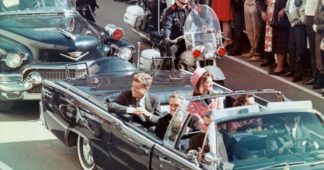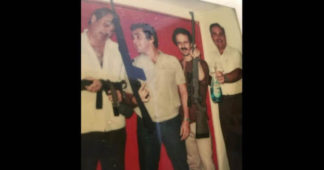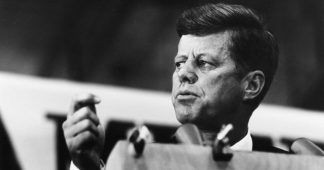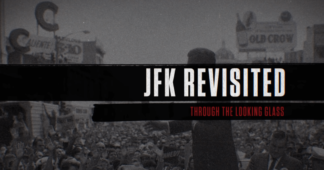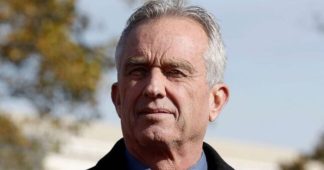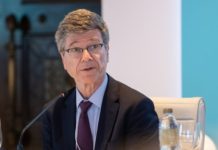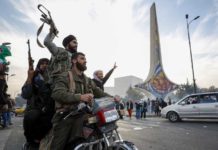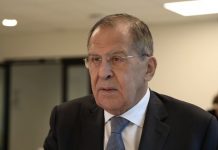In the fourth volume of his biography of Lyndon Johnson, The Passage of Power, Robert Caro remarks that the Warren Commission was suited to its own time, but not to ours. He does not say precisely what he means by this; herewith my own interpretation.
We know for fact that Chief Justice Earl Warren acted under Johnson’s instructions to squelch suspicions directed at Castro’s Cuba or the Soviet Union – who were in fact uninvolved – and so to defuse pressures for “retaliation” leading to nuclear war. We know that in such a war, at that moment, the US would have held an overwhelming advantage, and we know that US war planners back in 1961 had already plotted such an attack for late 1963, to Kennedy’s disgust. We therefore know that when, on the flight back from Dallas, Johnson remarked to Bill Moyers, “I wonder if the missiles are flying,” he meant American missiles. In the opening pages of his own memoir, The Vantage Point, LBJ comments on the nuclear danger at that moment. It is not naive to believe him.
The plot was theatrical. By the strongest accounts, it was led at the highest levels by military officers and intelligence officials, with Cuban exiles, mafiosi, Texas oligarchs and the City of Dallas in supporting roles. The evident purpose, when one considers that Kennedy could have been killed with impunity at any time with a poisoned syringe, was to traumatize the country and to intimidate LBJ. The first goal was accomplished; the second, only in part. Johnson kept the nukes locked up and the Marines out of Cuba. The price was the full-scale war in Vietnam. This, Kennedy had decided in October, 1963 to foreclose, by ordering that all US troops (and other units, meaning advisers and the CIA) be withdrawn from Vietnam by the end of 1965. In February 1965, after the attack on Pleiku – about which Senator Mike Mansfield expressed severe suspicions – Johnson yielded and stayed alive, moving to end the war only when the elite consensus behind it crumbled in 1968.
To exonerate the innocent and protect the guilty, the Warren Commission launched a phenomenal exercise in mass deception. Though crucial documents remain secret, the basic technique was not secrecy. It was confusion, incoherence, misdirection, and irrelevance at epic scale. This was combined with a culture of exclusion. To survive in American public life, ever since, requires adhesion to the Commission’s story until retirement or, at best, discreet silence. Anything else, and one is relegated to a side stage. For practical purposes this has proved sufficient; the physical elimination of witnesses, investigators and dangerous political dissidents – including Robert F. Kennedy – appears to have ceased some time ago.
The Big Lie of Kennedy’s murder continues to haunt us. It is not the first Big Lie in US history. But it was the first in present living memory and of the mass media and nuclear age. It therefore stands in unique contradiction to the US national self-image of functioning democracy governed by rational self-interest. At some level, on every side of disputes over this matter, everyone knows this. The basic divide remains: between those who admit the conspiracy, and those who deny it.
The country has thus dredged an unbridgeable division between its leadership and the larger population, to the extent that the latter consists of ordinary thoughtful people with common sense, curiosity and some understanding of basic physics, such as can be grasped by firing a rifle. As a condition of entry to the elite, one must commit to propositions that no careful person can believe. National leadership must, and does, exclude anyone unwilling to keep quiet on such matters. And it is also, therefore, in elite interest to reduce traits of common sense, curiosity and physical reality in the active population.
Can a country be run – successfully, that is – by an elite for whom moral and intellectual corruption is the ticket of entry? The answer would appear to be yes – for a certain amount of time. The US is not alone in having or in having had this problem. But there are at least three limiting factors.
The first is that the habit of Big Lies is addictive. While truth is, in some sense, an indivisible and unique commodity, lies can be multiplied. They are infinitely diverse, malleable, and competitive. Over time, their quality will degrade and with them, the quality of those who make it to positions of power. This phenomenon has often been observed elsewhere and is now far advanced in the US.
Second, the success of a Big Lie strategy depends on the scale of the required elites in relation to the larger population. If a country can be governed by a handful of oligarchs in (say) finance, technology, real estate, energy and their political minions, the rest of the population may be left to apolitical pursuits. But should there ever arise a need for mobilization, for mass action, for military volunteers or capable conscripts, for an industrial workforce, for a scientific surge – problems will arise. You cannot suddenly bring uncorrupted and perhaps incorruptible people to positions of responsibility and expect them to play by rotten rules.
Third, reality may at some point become the limiting factor. For the United States, at the moment, reality may be breaking through on four fronts. There is disillusion with claims that the economy is in fine shape. There is the realization that China is now the world’s leading industrial and economic power, having overtaken the United States within the past twenty years. There is a dawning realization that Russia is once again a superpower, not to be defeated militarily or by sanctions. And there is the horror of crimes against humanity in the Gaza strip. If these factors and their consequences cannot produce a revolt against elites for whom Big Lies, over 60 years, have become a way of life and a method of government, it’s hard to imagine that anything could.
* James K. Galbraith teaches at The University of Texas at Austin. For those interested in reading in detail on the Kennedy case, he recommends the works of John M. Newman, JFK and Vietnam, Oswald and the CIA, and the four volumes so far specifically on the assassination: Where Angels Tread Lightly, Countdown to Darkness, Into the Storm, and Uncovering Popov’s Mole.
We remind our readers that publication of articles on our site does not mean that we agree with what is written. Our policy is to publish anything which we consider of interest, so as to assist our readers in forming their opinions. Sometimes we even publish articles with which we totally disagree, since we believe it is important for our readers to be informed on as wide a spectrum of views as possible.
